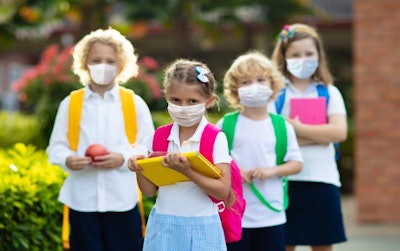
Economic, historical, social and cultural experiences influence career choices. How they differ from both your older and younger colleagues could be critical in communicating with co-workers.
"Individuals are born into an existing social structure. As individuals age within this structure, they share with others their age group-specific historic, economic, social and cultural experiences that subsequently shape their values and norms. As individuals become adults and enter the workplace, they bring with them these shared values and norms around work, such as their work ethic, style and leadership preferences," said Robynn Pease, Ph.D., University Ombuds Office at Oregon State University, during the Egg Industry Issues Forum Virtual Presentations, "Strategies for Communicating Across the Generations in the Workplace."
With that in mind, what long term impacts will COVID-19 have on future employees? I think it is inevitable that we will see some forms of impact and it may even vary from the oldest members of Generation Z to the younger ones.
Let us keep in mind that members of Generation Z, born between 1995 and 2015, are anywhere from starting kindergarten to graduating from college and entering the workforce already.
What we already know about Gen Z
The newest and youngest workers are members of Generation Z. They have been influenced by the Great Recession – characterized by a decline in economic activity, high unemployment rates of 5-10%, a decline in homeownership, and – like Millennials – a rise in global corporations, collaboration and smartphones/technology.
This generation tends to be hard-working, pragmatic and entrepreneur-like. They are technological multi-taskers that value meaningful work.
To engage this generation companies should provide opportunities with job security, benefits and clear job expectations, she explained. "Mold or shape the work around the individual instead," Pease said.
These explanations of the said generation were given before pandemic and I think it is fair to say we will see some changes, considering what they have recently experienced.
How COVID-19 may impact them
With many members of Generation Z still in grade school, it will be interesting to see how virtual learning impacts them as adults. Could this limit communication building skills? My mother-in-law is an elementary teacher and even with in-person learning, she has commented on how young kids struggle to communicate or pick up on social cues with masks on. However, on a more positive note, perhaps virtual learning will only further the generation's knowledge and ability to use technology. This could be beneficial as robotics and other forms of machinery become more prominent in livestock production.
What about one's ability to get up every day and leave the house? For decades it has been normal for kids to get up and go to school, while each home has its own routine, kids learn from this and develop habits. Will developing habits to stay home make it harder to find employees in the next generation that are willing to leave home to do jobs like working the processing line or checking bird health in barns?
Unless you have been living under a rock, you and members of Generation Z, have heard all about or perhaps even experienced panic buying. Will this promote further education or generate curiosity about our nation's food supply? Depending on how this plays out, it could be good for our producers. If consumers are better educated and fear not being able to purchase certain products or having to pay a premium for them, they may stop demanding certain specialty products that are already costly to producers.
Perhaps after watching the nation’s unemployment rate skyrocket during the pandemic, this generation, and specifically those already working, will require worker contracts to ensure the job security they are already looking for.
I am sure that I am only scratching the surface of what could be both positive and negative impacts on these potential employees, however, I am confident we will see residual effects of the pandemic in their professional behaviors.
As for Generation Alpha, born after Generation Z, I think it is safe to say they won’t remember the initial shock of the pandemic and there will be a whole new list of influences that play on their employee behaviors, the question is will it resemble anything we have ever seen before?
View our continuing coverage of the coronavirus/COVID-19 pandemic.

















